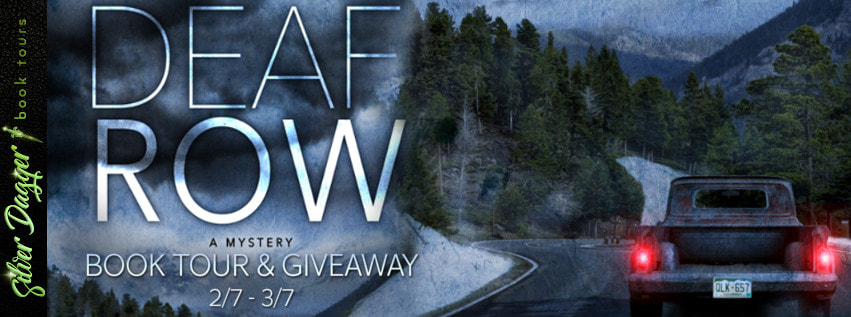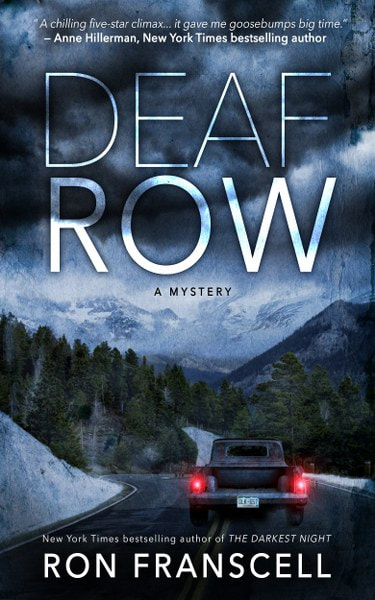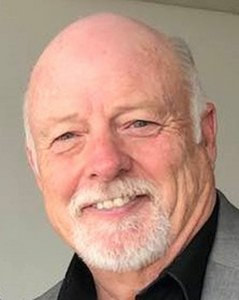
Woodrow Bell checked his watch, although he had no place to be. Nursing homes always made him feel that time was passing unusually fast.
The big man damn-near filled the cramped visitors’ foyer as he surveyed the dreary day room of the Old Miners Home. The sun was going down. It was Sunday, and the two nurses were elsewhere. Pale September twilight swathed the cheerless room as white-haired shadows silently drifted in for dinner, like dust that hadn’t yet been blown away.
Now past seventy, Bell knew he, too, was closer to the end than the beginning. It haunted him.
It wasn’t just the drabness of the Old Miners Home, with its dog-eared furniture, folding dinner tables, or the giant craft-paper calendar on the bulletin board that was utterly empty. It was the stiff knees … the hard mornings … the shrinking social circle … caring less and less about more and more … not remembering if it was the first time or the last time … getting up twice a night to pee a thimbleful … the AARP junk mail … the unreliable pecker … the fear you can’t finish the Sunday crosswords because you must have Alzheimer’s … the daughter who never calls … the mystery of why you ever voted for Democrats … already knowing which suit you’ll be buried in ... and being invisible to the rest of the world.
It all pissed him off most days.
And today was one of those days. After months of making excuses, he’d been tricked by his closest friend, Father Bert Clancy, into visiting the Old Miners Home. It wasn’t because a priest lied, not even because a friend lied, but because Bell didn’t immediately realize he was being played. He especially hated that.
In truth, the St. Barnabas Senior Center hadn’t been the Old Miners Home since the Nixon Administration, but everybody in the trifling mountain village of Midnight, Colorado, still called it the Old Miners Home. Good or bad, small towns seldom quit on a memory.
What inspired you to write DEAF ROW?
One day, an elderly friend told me about his old buddies who got together most mornings at a local diner where they fix what’s wrong with the world, tell tall tales, poke fun of each other, and remember their glory days. He told me they call themselves “Deaf Row”—and in the blink of an eye, a story sprang full-blown in my mind about those codgers, about growing old, and the importance of living all the way to the end.
Did you sit down right then and write it?
No. I was writing one of my true-crime stories at the time, and I was already working on the next true crime, so I tucked it away for some other day.
Tell us about your characters in DEAF ROW.
One of them is a retired Denver homicide detective named Woodrow Bell, whose friends call him “Mountain”—as in “Mountain Bell.”
Bell is a crusty, cynical, reclusive old fart who really just wants to fade away. When his closest friend, a retired priest with an unorthodox past, brings him a long-forgotten cold case, Bell’s natural reaction is merely to growl, but the more he learns, the more he can’t look away. Problem is, he’s just a retired cop, and he has none of the high-tech forensic tools that he once had in the big-city, and he isn’t taken seriously by local cops. All he has is Deaf Row, a motley crew of old guys who happen to have some skills that sometimes even they don’t realize. Together, they embark on an investigation that quickly proves to be bigger and badder than anybody imagined.
In the end, DEAF ROW is a classical mystery but it also dives into the lives of old people in overlooked places whose best days are behind them, whom we see every day but no longer actually notice.
Any engaging female characters among these guys on Deaf Row?
Oh, yes. No credible story about men can ignore women. They run throughout the whole book. One is Woodrow Bell’s “girlfriend” Charlie. At fiftysomething, she’s a couple decades younger than Bell. She’s pretty (when she allows herself to be pretty), smart, never married, has a tough exterior (she drives a garbage truck even though she runs the company she inherited from her father). She’s writing a novel, but won’t show it to Bell. She has Bell’s same commitment anxiety, but is devoted to him. They spar lovingly (and constantly), but she’s the only other person beside his priest friend that Bell “lets in.” They have an occasionally sexual relationship, but that’s not why they’re together. In the way the priest-friend sits on one shoulder, Charlie sits on Bell’s other, a more level-headed approach to problems. Through her, we see some of the softer stuff Bell tries to hide from the world.
And that’s true of DEAF ROW’s other female characters, too. They’re strong, they stopped taking shit a long time ago, and they give the guys purpose.
DEAF ROW is not just a crime story. It’s about men growing old, too.
It’s been either the blessing or the curse of my book-writing career: I just don’t want to do it like everybody else is doing it. I blended journalism and fiction-technique in my true crime, and in DEAF ROW, I wanted to blend commercial crime fiction with a kind of literary exploration of men who have outlived their best days and who are now growing invisible to the rest of the world.
So, yeah, DEAF ROW is an up-market fiction that should appeal to both suspense fans and to fans of more literary storytelling.
His
atmospheric and muscular writing—hailed by Ann Rule, Vincent
Bugliosi, William Least-Heat
Moon, and others—has established him as one of the most provocative American
voices in narrative nonfiction.
Ron’s
first book, “Angel Fire,” was a USA Today bestselling
literary novel listed by the San
Francisco Chronicle among the 100 Best Novels of the 20th Century
West. His later success
grew from blending techniques of fiction-writing with his daily
journalism. The result
was dramatic, detailed, and utterly true storytelling.
Ron
has established himself as a plucky reporter, too. As a senior writer
at the Denver Post,
he covered the evolution of the American West but shortly after 9/11,
he was dispatched
by the Post to cover the Middle East during the first months
of the War on Terror.
In 2004, he covered devastating Hurricane Rita from inside the storm.
His
book reviews and essays have been widely published in many of
America’s biggest and
best newspapers, such as the Washington Post, Chicago Sun-Times,
San Francisco Chronicle, San Jose Mercury-News, St. Louis
Post-Dispatch, Milwaukee Journal-Sentinel and others. He has been
a guest on CNN, Fox News, NPR, the Today Show, ABC News, and he
appears regularly on crime documentaries at Investigation Discovery,
Oxygen, History Channel, Reelz, and A&E.
He
lives in northern New Mexico.
Website
* Facebook
* Twitter * Bookbub
* Amazon
* Goodreads
Follow
the tour HERE
for special content and a giveaway!
$20 Amazon
a Rafflecopter giveaway







Thank you so muich for featuring DEAF ROW today! I genuinely hope your followers like my new mystery, which is a departure from my true-crime books. Time will tell! Again, thank you.
ReplyDeleteThis sounds like a very intriguing read!
ReplyDelete